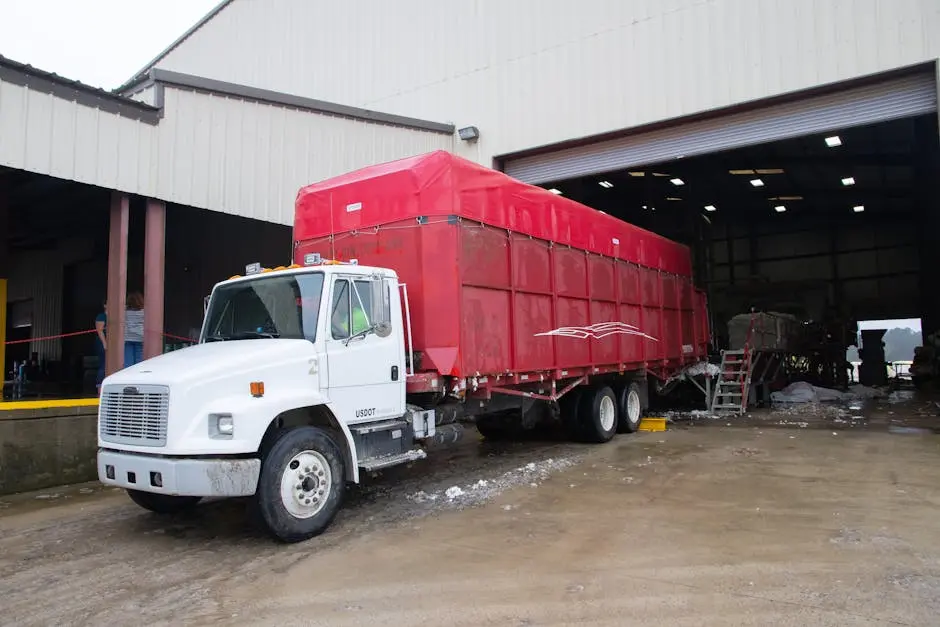Entering the realm of heavy duty truck financing can appear daunting at first, especially for business owners heavily reliant on acquiring such machinery. This guide aims to demystify the process, outlining clear steps and considerations to ensure you make informed decisions that benefit your business’s bottom line.
Understanding the Basics of Heavy Duty Truck Financing
Heavy duty truck financing may seem complex, but it boils down to securing the necessary funds to purchase these vehicles critical for your operations. The basics start with understanding the difference between conventional loans and those specifically tailored for the purchase of heavy equipment. Lenders typically require a detailed assessment of the truck’s intended use, which helps determine the loan’s terms. Educating yourself on these financing fundamentals is your first step towards making an empowered decision.
Another fundamental aspect is recognizing the role of credit scores in financing. A strong credit history can significantly reduce interest rates and improve terms. However, for those whose credit scores are less than perfect, there are still viable options. Specialized lenders understand the unique challenges of financing heavy equipment and often offer solutions that cater to a broader range of credit profiles. It’s about finding the right lender who sees the value in your business plan and the revenue-generating potential of a heavy duty truck.
Assessing Your Financial Health Before Applying
Before embarking on the journey of securing loans for heavy duty trucks, taking an honest look at your financial health is crucial. This goes beyond merely knowing your current credit score. Assess your business’s cash flow, existing debts, and your capability to make down payments. A strong financial foundation not only eases the process of getting approved for financing but also positions you to negotiate better terms. Preparing an in-depth financial overview might expose areas for improvement, whether it’s reducing existing debt or finding ways to bolster your cash flow.
It’s also valuable to understand how lenders perceive risk. They will scrutinize your business’s financial history and projections to gauge the likelihood of timely repayments. Demonstrating stability and growth potential is key. This might persuade lenders to view your application more favorably, even if your credit isn’t perfect. Highlighting past successes and a solid business plan can tip the scales in your favor.
Exploring Financing Options: Leasing vs. Buying
Deciding whether to lease or buy heavy duty trucks is a pivotal decision. Leasing can be an attractive option for businesses seeking lower monthly payments and the flexibility to upgrade equipment without the burden of owning outdated machinery. It’s particularly advantageous for companies with periodic projects that don’t require year-round use of a truck. On the flip side, buying outright, though initially more expensive, can be more economical over time. Ownership means you can accrue equity in the asset, which could be beneficial for future financing needs or as leverage in business expansions.
The Importance of Interest Rates and Down Payments
Interest rates and down payments play a significant role in the cumulative cost of financing heavy duty trucks. A lower interest rate can save your business thousands over the life of a loan, making it essential to shop around or negotiate the best rate possible. Likewise, a substantial down payment might reduce your interest rates further, as it decreases the lender’s risk. However, it’s crucial to balance the down payment against your business’s need for cash flow, ensuring that making a large upfront payment doesn’t strain your operational capacity.
Preparing Your Application: Documents You Need
When preparing to apply for heavy duty truck financing, gathering the necessary documentation in advance can streamline the process. Expect to provide detailed financial statements, proof of insurance, equipment quotes, and possibly a business plan, especially if your creditworthiness is not straightforward. Each lender has unique credit requirements, so clarifying these before application can prevent delays. Demonstrating thorough preparation reflects positively on your business acumen, potentially influencing the lender’s decision.
How to Choose the Right Financing Partner
Selecting the right financing partner is pivotal. Look beyond the interest rates; consider the lender’s experience with heavy duty truck financing, customer service quality, and flexibility in terms of repayment options. A partner who understands the cyclicality and specific needs of your industry can offer invaluable guidance and tailored solutions. Take time to research and compare lenders, reading reviews and checking references if available. Ultimately, the best financing partner is one that aligns with your business goals and supports your growth trajectory.
Flexible Repayment Terms and Their Advantages
Flexible repayment term loans can provide the breathing room needed to align loan repayments with your business’s cash flow patterns. Especially for businesses that experience seasonal fluctuations, having the ability to adjust payments during slower periods can prevent financial strain. Lenders that offer such flexibility understand the unpredictable nature of business and can be more accommodating in the face of unforeseen challenges. Engaging in open conversations about your business’s financial cycle can help in negotiating terms that support rather than burden your operations.
Simplifying Your Path to Heavy Duty Truck Financing
- Heavy duty truck financing
- Best truck loans for owner-operators
- How to finance a heavy duty truck
- Commercial truck financing options
- Affordable semi-truck loans
- Heavy equipment truck leasing
- Low down payment truck financing
- Best lenders for truck financing
- Lease-to-own heavy trucks
- Truck loan approval requirements
Securing financing for heavy duty trucks need not be a complex ordeal. By understanding your financial health, exploring various financing options, preparing necessary documents, and considering the benefits of flexible repayment terms, you can navigate the world of heavy duty truck financing with ease. Remember, the right approach to financing can significantly impact your business’s operational efficiency and profitability. Equip yourself with knowledge, and make choices that propel your business forward.

